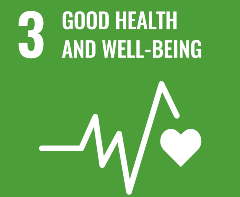-.jpg)
Public involvement and engagement in the COVID-19 crisis
Vocal, a not-for-profit organisation hosted by Manchester, brings people and health research together to benefit all. During the COVID-19 pandemic they have partnered on a range of initiatives to mitigate the health inequalities resulting from the crisis.
Over the last few months, researchers across the globe have worked at an extraordinary rate in an effort to tackle the COVID-19 pandemic. With a staggering number of infections and high volume of certified deaths, the pandemic has brought to light stark health inequalities among communities and groups that are often less well listened to.
Prior to the pandemic, Vocal (formerly the Public Programmes Team), hosted by Manchester University NHS Foundation Trust, working in partnership with The University of Manchester, had already been working with people, patients and community groups to help reduce health inequalities in clinical and translational research.
Uniting people and health research
In recognition of the vital importance of patient and public involvement, engagement and participation (PIE) in research, the National Institute for Health Research (NIHR), developed eight principles outlining shared commitments to PIE during the COVID-19 pandemic (some of these principles are referenced in more detail below).
Aligned to the UK Standards for Public Involvement, the principles emphasise inclusive opportunities, communication, impact, governance and the value of working together.
Involving local communities in health research
Vocal supports the NIHR Manchester Biomedical Research Centre (BRC), NIHR Manchester Clinical Research Facility, the Research Design Service, University-based and other researchers to involve and engage people in health research.
While many non-COVID-19 studies were temporarily put on hold, Vocal contributes to the Manchester Rapid Research Response Group working with COVID-19 researchers to seek input from local communities, to develop innovative ideas to bring people and health research together.
Vocal’s BAMER Research Advisory Group (BRAG) is a group of Black, Asian and Minority Ethnic community leaders who provide input and advice to promote inclusive research that addresses the needs of Greater Manchester’s diverse communities.
BRAG has continued to meet online during the pandemic to share the impact of COVID-19 on different communities, and work with researchers to draw attention to these. BRAG and Vocal have contributed to several local and national COVID-related research proposals and have blogged about the disproportionate burden of COVID-19 on Black and Asian communities.
.jpg)
Young people are often missing from broader discussions of COVID-19 and research more generally, and are an important information-consuming generation.
Voice Up is Vocal’s young people’s research advisory group, made up of young adults from across all of Greater Manchester’s boroughs and ethnicities, with lived experience of different health conditions. Voice Up are part of an exciting project – Planet DIVOC-91 – a digital comic providing an alternative, engaging narrative to the current pandemic, incorporating ways of feeding in young people’s perspectives to future research and science policy.
The comic has been co-developed by well-known graphic novel artists, UK Comics Laureate Hannah Berry, Walking Dead’s Charlie Adlard, FRIENDO writer Alex Paknadel, young people and scientific experts from different research disciplines, including Sir Patrick Vallance, Chief Scientific Adviser to the government. It will empower young adults to make sense of the science and research behind issues faced in pandemics.
The 9-part webcomic, featured on WEBTOON until March 2021, was kick started with seed funding from the NIHR Manchester Biomedical Research Centre and The University of Manchester through the Wellcome Institutional Strategic Support Fund.
The funding enables the engagement of young adults in India and South Africa in a participatory arts project, coordinated by DBT/Wellcome Trust India Alliance, Interfer in South Africa and Blast Fest in Birmingham.
Continuing to make opportunities inclusive
Earlier this year, the Women and Equalities Committee launched a government inquiry into the impact of COVID-19 on people with protected characteristics.
Vocal highlighted this to all public contributors they work with, including the Deaf Experts by Experience Group and coordinated a response, which raised:
- concerns about different care experiences of those who were BAME, older or who had disabilities;
- concerns about cancellation of existing services which had a great impact on people, eg IVF and cancer treatment;
- that people’s protected characteristics were felt to have strongly influenced their lockdown experiences, eg ethnicity, age, pre-existing health problems, disability;
- the importance of clear communications from the government and talking to people.
Life after a crisis
While clinical research into COVID-19 is vital, we must also remember the value of involving people in research and the benefits that come from understanding and exploring the public’s experiences, opinions, risk perceptions and behaviours during this pandemic.
Continuing to involve and empower different voices to be part of the conversation and working together to shape research questions will help develop new ways to tackle COVID-19.
There is an opportunity to learn and adapt in ways that will bring huge advancements and improvements to the world of research and the way we involve people in health research, may even help us to be more prepared for future pandemics.
This article had been adapted from Public involvement and engagement in the COVID-19 crisis, a blog by Dr Emily Howlett, Public Programmes Project Manager.
About the writer
Bella Starling is a Wellcome Trust Engagement Fellow and Co-Director of Vocal at Manchester University Hospitals NHS Foundation Trust. Her career has spanned neuroscience, stem cell and genetic research, science writing, biomedical ethics, public engagement, patient involvement and science policy, both as a practitioner and strategic adviser.

